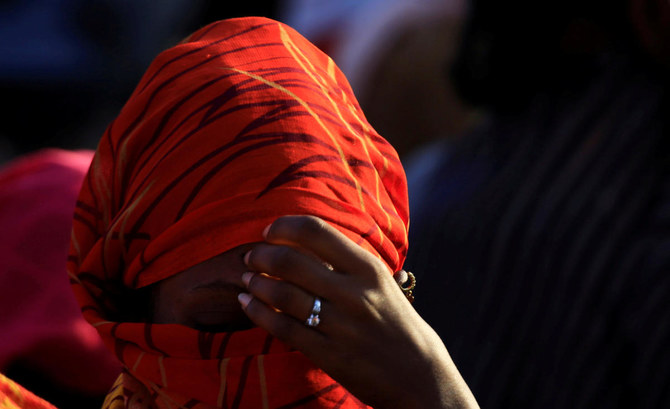ADDIS ABABA/NAIROBI: Ethiopian federal forces were encircling the Tigray region’s capital from around 50 km (30 miles) on Monday, the government said, after giving the Tigray People’s Liberation Front (TPLF) a 72-hour surrender ultimatum.
“The beginning of the end is within reach,” government spokesman Redwan Hussein said of the nearly three-week-old offensive that has destabilized Ethiopia and spilled into some Horn of Africa neighbors.
Prime Minister Abiy Ahmed has told the TPLF, which had been ruling the mountainous northern zone of 5 million people, to lay down arms by Wednesday or face a final assault on Mekelle, a highland city of half a million people.
TPLF leader Debretsion Gebremichael denied that Mekelle was surrounded and told Reuters the ultimatum threat was a cover for government forces to regroup after what he described as defeats on three fronts.
Reuters could not verify the latest statements.
Claims by all sides are hard to verify because phone and Internet communication has been down.
Hundreds, possibly thousands, have been killed in fighting and air strikes that erupted on Nov. 4, sending about 40,000 refugees into neighboring Sudan, after the government accused the TPLF of ambushing a federal military base.
The conflict has spread beyond Tigray, with the TPLF firing rockets into both the neighboring Amhara region and across the border to Eritrea, which Tigrayans accuse of supporting government forces, something Asmara denies.
Redwan told a news conference that the government now controlled most of Tigray and people in captured towns were handing over weapons given them by the TPLF.
Federal forces were ringing Mekelle from about 50 km, he added in a text to Reuters.
Tigrayan forces fired rockets on Monday at Bahir Dar, the capital of Amhara region whose authorities are supporting the federal offensive, Redwan and residents said. He said the rockets caused no damage.
“So far, I didn’t hear of any casualties,” said a hotel receptionist of the pre-dawn attack. “I guess now we are accustomed to it and there wasn’t much panic.”
ANCIENT AXUM
Addis Ababa police have arrested some 796 people suspected of plotting “terrorist attacks” in the capital for the TPLF, the state-affiliated Fana broadcaster reported.
There was no immediate comment from Ethiopia’s government or the TPLF.
The government said TPLF troops had destroyed the airport at the ancient town of Axum, a popular tourist draw and UNESCO World Heritage site 215 km (133 miles) northwest of Mekelle.
The TPLF’s Debretsion denied this, saying obstacles had been put up to block advances by the Ethiopian military.
Axum’s history and ruins, including fourth-century obelisks erected when the Axumite Empire was at its height, gives Ethiopia its claim to be one of the world’s oldest centers of Christianity.
Legend says it was home to the Queen of Sheba and Ethiopians believe a church there houses the Ark of the Covenant.
The TPLF accuses Abiy of invading their region to dominate them. “We are people of principle and are ready to die in defense of our right to administer our region,” TPLF leader Debretsion added in a text message to Reuters.
Debretsion was a signals and intelligence officer for the TPLF in their war against Ethiopia’s Marxist dictatorship in the 1980s and later earned a degree in electronic engineering from Addis Ababa University.
He rose to the rank of deputy prime minister in the Ethiopian government when it was dominated by the TPLF.
The TPLF accuses Abiy, a former military comrade and coalition partner, of marginalizing their ethnic group since becoming prime minister two years ago. He has removed Tigrayan officials from influential roles in government and the military and detained some on rights abuse and corruption charges.
Abiy, whose parents are from the larger Oromo and Amhara groups, denies any ethnic undertones, saying he is legitimately pursuing criminals and preserving national unity.
The African Union (AU) has named three envoys for potential talks over Tigray. Redwan said Abiy would meet them and was open to all options except negotiating with the TPLF.
Attorney General Gedion Timothewos Hessebon said TPLF actions, including attacks on the military’s Northern Command, Amhara and Eritrea, may constitute treason and terrorism. Authorities have frozen the assets of 38 companies linked to them, he added.
















